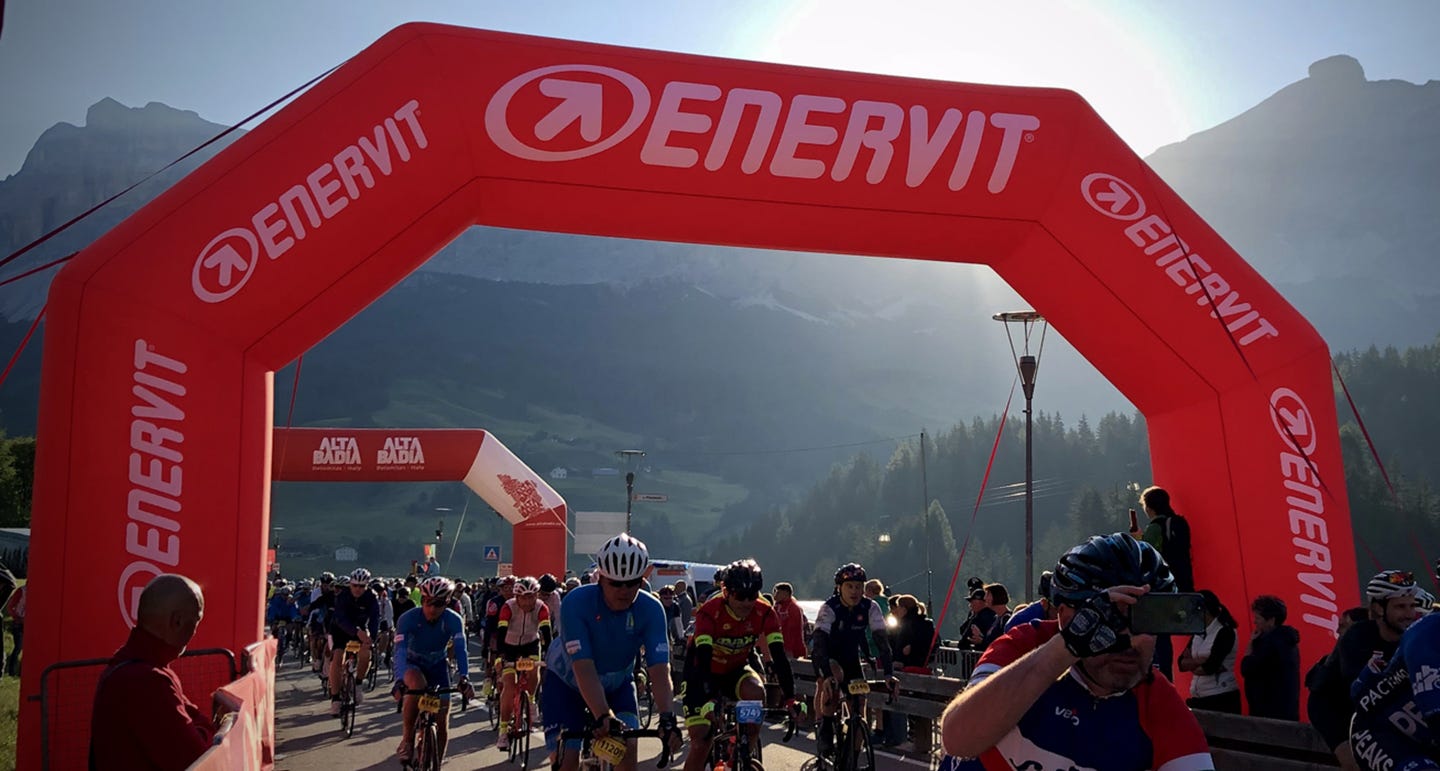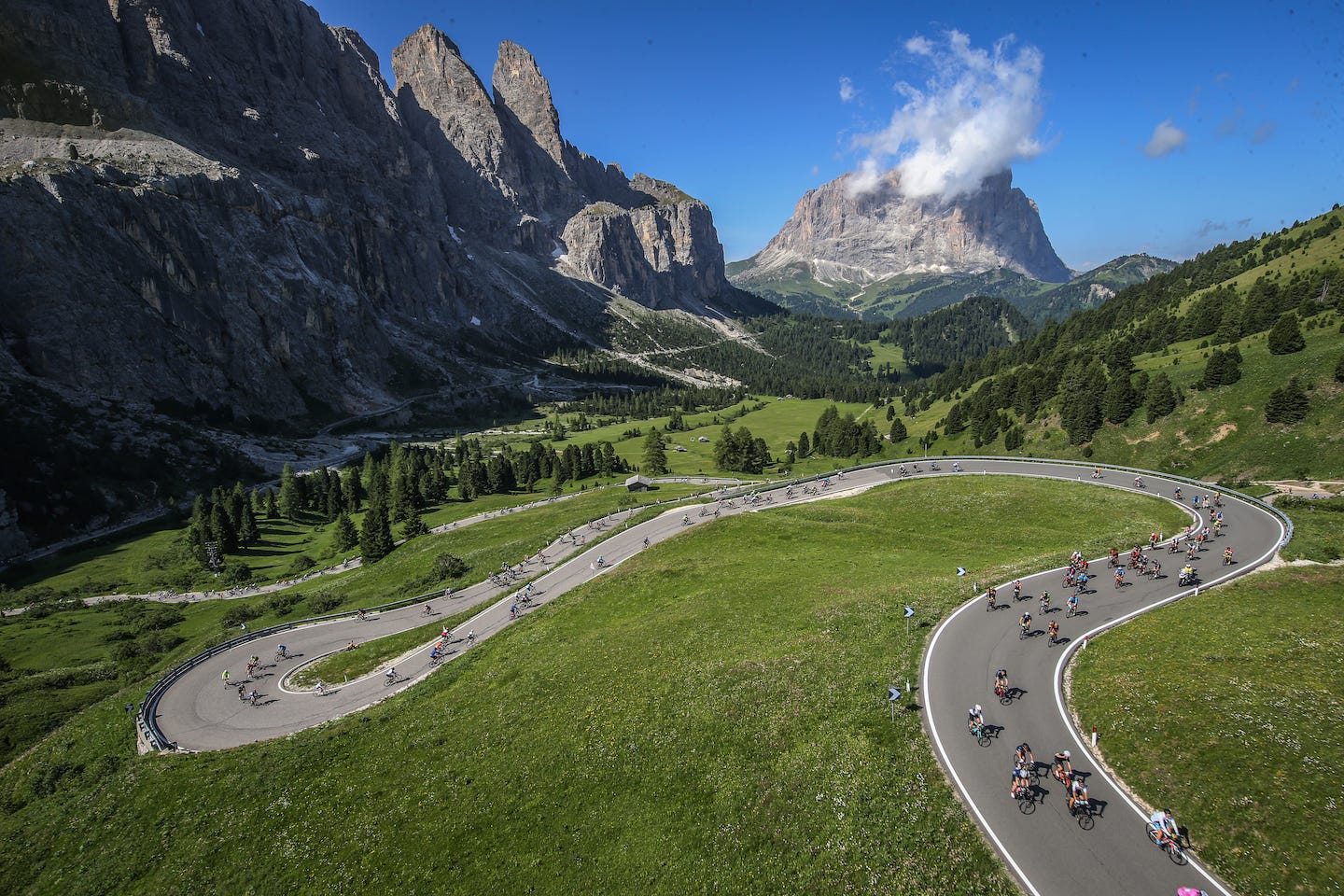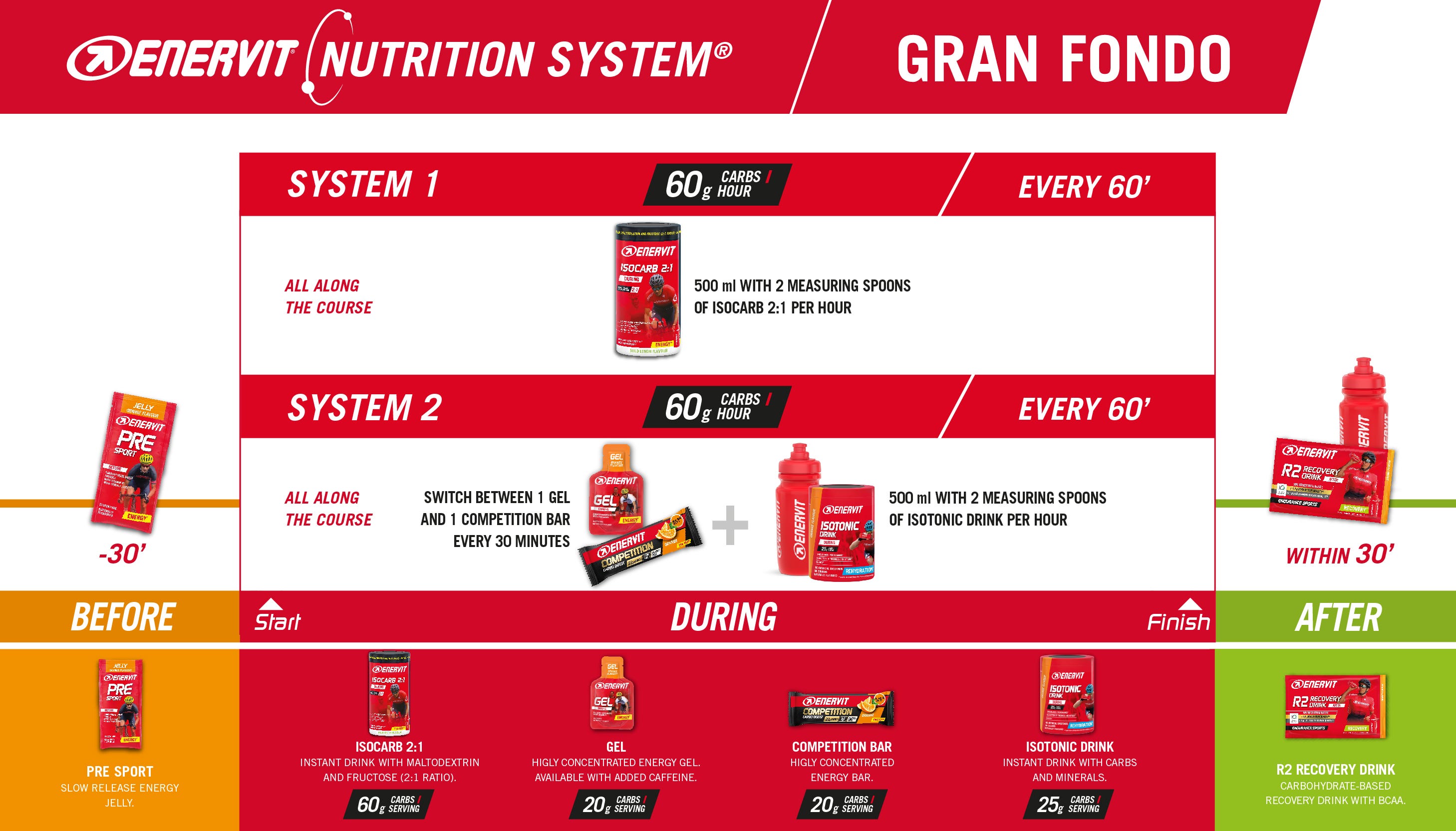The nutritional strategy for tackling a Gran fondo
Elena Casiraghi - Equipe Enervit

Three aspects must be considered when preparing for a cycling gran fondo:
- bike choice (and related equipment)
- physical preparation
- nutritional training
The latter deserves special attention because nutrition is too often underestimated.
If information about what to eat was passed on by "word of mouth" or by imitating the "champions" in the past, today there are various scientific studies that explain how to: prepare for a gran fondo; eat in the days before the race; and how to supplement during the race. The nutritional strategy should be treated just like training (it’s no coincidence that it’s referred to as "nutritional training") and should be planned and customized with great precision. When put into practice, the advice is to test it in the months leading up to the event, starting with scientific guidelines until you develop the one best suited to your needs.
What to eat in the days prior to the race
A cycling gran fondo starts with what to eat in the days prior to the race. Hydration is a priority, and it’s essential to show up at the start with an adequate level of hydration. How to do that? With just the simplest gesture in the world: drink a glass of water every waking hour of the day. Even better, add saline supplements to the glass, which, in addition to mineral salts, also provide a small portion of carbohydrates, which are valuable in helping to "load" energy reserves.
And at the table? “Yes” to carbohydrates, such as rice or pasta seasoned with extra-virgin olive oil, but without neglecting a protein food source such as chicken, turkey or tofu, and progressively reducing the intake of fruit, and especially vegetables, in the three days prior to competition, so as not to run into annoying intestinal problems.

Race day: nutrition and supplementation
Race day has arrived. What to eat for breakfast? The first advice is not to imitate the professionals. For them, breakfast is a continuous recovery from previous stages, while an amateur has already replenished glycogen reserves in the pre-race days. So, it's best to avoid bingeing at breakfast with the idea of filling up with energy, only to suffer setbacks such as feeling bloated and reduced sharpness during competition. A couple of solutions to best start the day would be:
- a few rusks with some jam and a protein source of your choice, like lean sliced ham, egg white, or smoked salmon
- a couple of rusks with a teaspoon of jam and a supplement of cacao flavanols dissolved in water at room temperature (so as not to denature them)
On that note, to help endurance athletes get off on the right foot, Enervit has developed specific cocoa flavanol supplements that can promote blood flow to the muscles during exertion – and thus oxygen and nutrients. For maximum benefit, the advice is to take them starting the week before the race, either in pure form or combined with carbohydrates, depending on training loads.

It’s a short time before the start. This is the ideal time to take energy supplements that promote a slower release of energy. If you choose Enervit Pre Sport, the advice is to eat one half 60 minutes before the start and the rest 30 minutes before the start along with a few sips of water.
After the first hour of racing, you must keep your concentration high. During this phase, it is fundamental to continue taking in carbohydrates in the right amount and at regular intervals. The goal is to prolong endogenous energy reserves and reduce the risk of an energy crisis. To do this, you need 60 g of carbohydrates per hour of exercise, an amount that can be achieved with gels and energy bars. The Enervit Sport line offers various types that provide 20 to 30 g of carbohydrates. The advice is to take isotonic gels at times of greatest exertion, where immediate energy is needed (e.g., uphill), and to favor bars during flatter sections. Finally, the new Enervit Isocarb 2:1 provides 30 g of carbohydrates per scoop and allows up to 90 g of carbohydrates/hour to meet the needs of the most demanding athletes.
A look at hydration, too. Each time you take your carbohydrate portion per hour of exercise, you should accompany it with one or two sips of isotonic salt supplements designed to maximize hydration during exercise. In fact, it has now been proven that these supplements increase water absorption and help maintain consistent performance during prolonged exercise.
Were you able to cross the line?
Congratulations! But before you celebrate (even at the table but always with a little caution) take advantage of the first 30 minutes post-race to consume high-glycemic-index carbohydrates such as maltodextrins and high-quality branched-chain amino acids to restore proper hydration and energy levels and reduce muscle stress. Immediately post-race is the most effective time to start recovering from fatigue and to prepare for the next challenge.
BIBLIOGRAPHY
- Jeukendrup, A. E. Nutrition for endurance sports: marathon, triathlon, and road cycling." J Sports Sci 29 Suppl 1: S91-99, 2011.
- Jeukendrup, A. (2014). A step towards personalized sports nutrition: carbohydrate intake during exercise." Sports Med 44 Suppl 1: 25-33, 2014.





